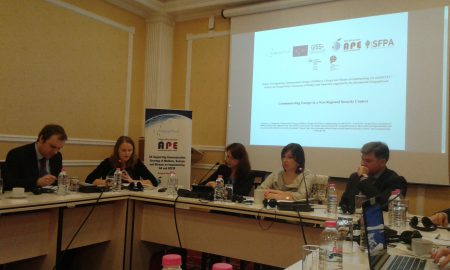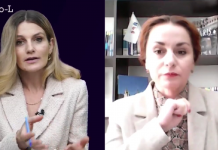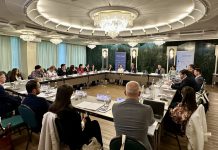Agenda
Communicating Europe in a New Regional Security Context
10:00 – 10:30 Registration & Coffee Break
10:30 – 10:40 Welcoming remarks
Victor Chirila, President of the Foreign Policy Association of Moldova
10:40 – 11:30
Discussion topic:
Communicating Europe: Experience of the Visegrad countries – best practices for Moldova, Georgia and Ukraine
Moderator:
Liliana Vitu – Esanu, Former Advisor on Communication of the Prime Minister of the Republic of Moldova Iurie Leanca, Member of the Administration Council of the Foreign Policy Association of Moldova
Speakers:
Zsuzsanna Vegh, Research fellow, Center for European Neighborhood Studies, Central European University, Hungary
Vit Dostal, Research Director with the Association for International Affairs, Czech Republic
Marek Marszalek, Programme Manager for Romania and Moldova with the Institute for Eastern Studies, Poland
Samuel Goda, PhD, Project Coordinator and Researcher with the Slovak Foreign Policy Association, Slovakia
Leonid Litra, Senior Research Fellow with the Institute of World Policy, Ukraine
Irakli Porchkhidze, Vice-president of the Georgian Institute for Strategic Studies, Georgia
Victoria Bucataru, Executive Director of the Foreign Policy Association of Moldova
11:30 – 11:40
Guest speaker
Mrs. Ruxandra STANCIU, Press and Information Officer, Political, Press and Information Section,
Delegation of the European Union to the Republic of Moldova
11:40 – 12:15 Q & A
12:15 -13:00 Coffee Break and informal talks
Venue: Regency Hotel (17 Sfatul Tarii Street)
Date: February 20 (Monday), 2017
Language: Romanian/ Simultaneous translation to Enghlish
The project „V4 Supporting Communication Strategy of Moldova, Georgia and Ukraine on implementing AA and DCFTA” is led by the Foreign Policy Association of Moldova and financially supported by the International Visegrad Fund. The opinions expressed during the events/publications are those of the participants/authors and do not necessarily reflect the views of the International Visegrad Fund







